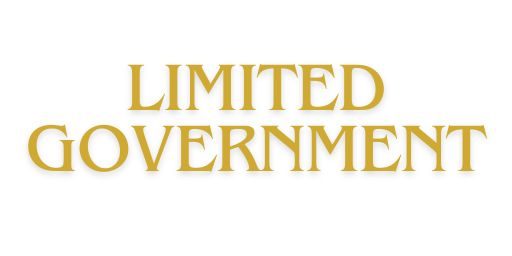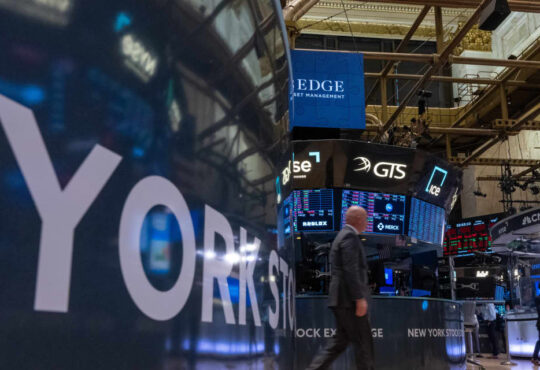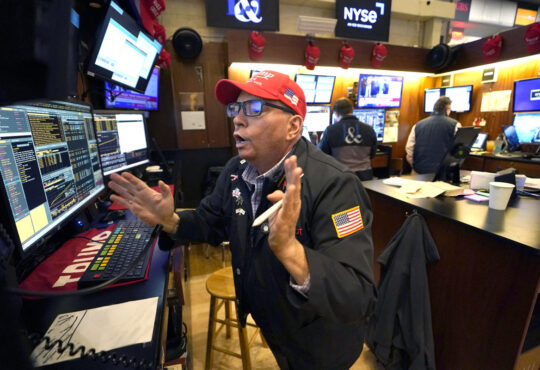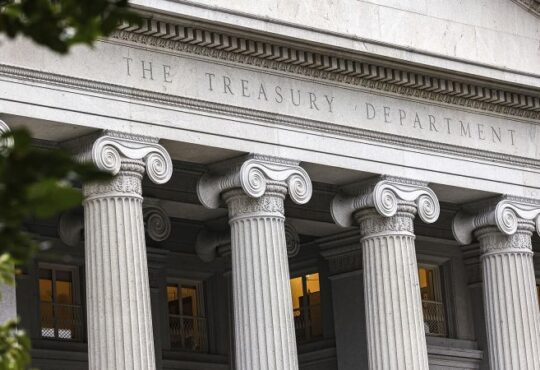
Will the Stock Market Soar or Crash in 2025? Most Wall Street Analysts Share This Opinion.
The S&P 500 (^GSPC -0.43%) rocketed 23% in 2024, marking the second consecutive year in which the benchmark index gained more than 20%, something it last did in 1998. Factors contributing to that upside include strong economic growth, robust corporate earnings, and excitement about artificial intelligence (AI).
Most Wall Street analysts see upside in the stock market in 2025. Here’s what investors should know.
Wall Street expects S&P 500 companies to report faster revenue and earnings growth in 2025
In aggregate, S&P 500 companies are projected to report 14.8% earnings growth in 2025, an acceleration from 9.4% growth in 2024. Those earnings are expected to be high quality, meaning the increase will primarily be driven by accelerating sales growth and expanding profit margins. Sales growth is forecast to hit a three-year high in 2025, while profit margins are projected to reach their highest level in more than 15 years.
To elaborate, S&P 500 companies are projected to report 5.8% revenue growth in 2025, up from 5.1% in 2024. That would be the fastest revenue growth since 2022. Additionally, the estimated net profit margin for the index is 13% in 2025, up from 12% in 2024. That would be the highest net profit margin since at least 2008, according to FactSet Research.
The “Magnificent Seven” ran circles around the other 493 companies in the S&P 500 in 2024. While fourth-quarter financial results haven’t been announced, those seven companies are projected to report 33% earnings growth for the year, while the remaining companies are projected to report 4% earnings growth.
Analysts think that gap will narrow significantly this year, such that the 29-point spread in 2024 (33% vs. 4%) will become an eight-point spread in 2025 (21% vs. 13%). That should create good investment opportunities beyond the Magnificent Seven. Technology companies are forecast to report faster earnings growth than any other sector, but earnings are expected to increase across every sector for the first time since 2018.
Most Wall Street analysts anticipate strong returns in 2025, but a few see downside in the market
Below you’ll find year-end estimates for the S&P 500 in 2025, set by different Wall Street institutions. The chart also shows the implied upside or downside from the index’s current level of 5,882. While the list is by no means comprehensive, the vast majority of analysts expect the market to move higher.
|
Wall Street Firm |
S&P 500 Year-End Forecast for 2025 |
Implied Upside (Downside) |
|---|---|---|
|
Oppenheimer |
7,100 |
21% |
|
Wells Fargo |
7,007 |
19% |
|
Yardeni Research |
7,000 |
19% |
|
Deutsche Bank |
7,000 |
19% |
|
Evercore |
6,800 |
16% |
|
BMO Capital |
6,700 |
14% |
|
Bank of America |
6,666 |
13% |
|
RBC Capital |
6,600 |
12% |
|
Barclays |
6,600 |
12% |
|
Morgan Stanley |
6,500 |
11% |
|
Goldman Sachs |
6,500 |
11% |
|
JPMorgan Chase |
6,500 |
11% |
|
Citigroup |
6,500 |
11% |
|
Stifel |
5,500 |
(6%) |
|
BCA Research |
4,450 |
(24%) |
|
Average |
6,500 |
11% |
|
Median |
6,600 |
12% |
Data source: Yahoo! Finance. Chart by author..
As shown above, the average year-end target for the S&P 500 implies 11% upside, while the median year-end target implies 12% upside in 2025. Those numbers aren’t as strong as what we saw in 2024 but still hint at a good year for the stock market.
However, investors should view those estimates with skepticism because Wall Street has a poor track record. For instance, the median forecast was 16% too low in 2024, 17% too low in 2024, and 23% too high in 2022.
Investor sentiment moves the stock market on a daily basis, but sentiment is determined by valuations and financial results, which are influenced by macroeconomic fundamentals like inflation, spending, and interest rates. Those factors will move the market in 2025, so investors should stay informed on the economy.
I’m cautiously optimistic. The stock market has several tailwinds at its back, including a strong economy and heavy spending on artificial intelligence. But valuations are elevated, and the Federal Reserve may cut interest rates fewer times than expected in 2025, which could lead to a drawdown.
Citigroup is an advertising partner of Motley Fool Money. Bank of America is an advertising partner of Motley Fool Money. JPMorgan Chase is an advertising partner of Motley Fool Money. Wells Fargo is an advertising partner of Motley Fool Money. Trevor Jennewine has no position in any of the stocks mentioned. The Motley Fool has positions in and recommends Bank of America, FactSet Research Systems, Goldman Sachs Group, and JPMorgan Chase. The Motley Fool recommends Barclays Plc. The Motley Fool has a disclosure policy.




